What To Do If You Smell Gas in Your House

Have you ever caught a whiff of something in your home that smells a bit like rotten eggs and thought, “Do I smell gas?” If you have, you’ll want to know what that might mean and what you should do next.
Natural gas — widely used in many homes for heating and cooking — is typically odorless. That’s why a substance called mercaptan, which has a distinctive rotten egg smell, is added to it. This addition is a safety measure, making it easier for you to detect a natural gas leak by smell.
In this article, we’ll walk you through the steps to take if you suspect there’s a gas leak in your house. We’ll cover everything from the initial detection — trust your sense of smell — to the actions you should take to ensure your safety and that of your home.
Whether it’s identifying the telltale signs of a gas leak, understanding why it’s a hazard, or knowing who to call, we’ve got you covered.
How To Identify a Gas Leak
Quickly identifying a gas leak can be a lifesaver. The most common sign that you’re dealing with a gas leak is the smell.
Natural gas in its original state is odorless, so gas companies add a substance called mercaptan to give it a distinctive rotten egg smell. They do this specifically to alert you in case of a leak. If you catch this gas odor in your home, it’s a strong indicator that you might have a natural gas leak.
But relying solely on your sense of smell isn’t enough. Sometimes, a hissing sound near your gas lines or a faulty pilot light can also hint at a potential gas leak. Gas escaping from a pipe or hose is usually the source of this sound. Additionally, look for visual cues. For instance, if you notice dead plants around your gas pipes or standing water with bubbles in it, these can be signs of a gas leak affecting the area.
Consider installing a gas detector in your home. These devices are designed to detect the presence of gas and can be a valuable tool in identifying leaks that you might not smell, hear, or see. They’re particularly useful for those with a less sensitive sense of smell or in areas where gas appliances are used frequently.
Remember, if you suspect a gas leak, it’s always better to be safe and investigate further.
Immediate Actions When You Smell Gas
When you smell gas inside your house, acting quickly but calmly is important. Your safety and the safety of others in your home are paramount. Here are the steps you should take immediately.
1. Evacuate the House
As soon as you smell natural gas, evacuate the house. Don’t wait. Get everyone out quickly and calmly, including pets. Ensure that all inhabitants move to a safe distance away from the property. This is not a time for gathering belongings — your safety is more important.
2. Don’t Use Any Electrical Devices or Open Flames
Once you smell gas, avoid using any electrical equipment and devices, including light switches, garage door openers, and doorbells. Also, refrain from using open flames, such as matches or lighters. These actions can create sparks, which might ignite the gas.
3. Call the Local Gas Company or Emergency Services
After you’ve reached a safe distance, call the emergency number for your local gas service or emergency services immediately. Provide them with all the necessary information about the situation. They’ll guide you on the next steps and send help. Follow their instructions precisely.
4. Warn Others in the Vicinity
If you live in a neighborhood or an apartment complex, inform your neighbors about the gas leak. This is crucial for community safety. Helping others be aware of the danger can prevent potential disasters.
5. Don’t Re-Enter the House Until It’s Safe
Don’t go back into the house until it has been declared safe by the gas company or emergency services. Re-entering too soon can be risky. Professionals will inspect your home and find the source of the leak. They will give you the all-clear to return once they’ve addressed it.
Tips for Preventing Gas Leaks
Preventing a gas leak is always better than having to deal with one. Here are some practical tips to help you minimize the risk of a gas leak in your home:
- Do regular maintenance on gas appliances. Keep your gas appliances in top shape through regular maintenance. This includes your stove, oven, hot water heater, and any other gas appliance. Ensure they’re serviced as recommended by the manufacturer or a professional technician. This not only prolongs their life but also helps in early detection of potential problems.
- Get professional inspections. Have a qualified technician inspect your home’s gas lines and appliances periodically. They can detect issues you might miss, such as small leaks or wear and tear on your gas line.
- Install gas detectors. Gas detectors alert you when there’s an accumulation of gas in your home, giving you time to react before it becomes dangerous. Install them near gas appliances and in areas where you might not notice a gas smell immediately, like basements or garages.
By following these tips, you can reduce the risk of a gas leak in your home. Remember, gas safety precautions are continuous processes, not a one-time check. Stay vigilant and proactive in maintaining your gas appliances and systems.
FAQ About Gas Leaks
When it comes to gas leaks, a few questions commonly come up. Let’s address some of these frequently asked questions to help you better understand and respond to a gas leak scenario.
What Does a Gas Leak Smell Like?
A gas leak typically smells like rotten eggs. This distinct smell is due to mercaptan, a harmless chemical added to the naturally odorless natural gas.
Why add this scent? It’s all about safety. By giving natural gas a recognizable odor, it becomes much easier for you to detect a leak early on. So, if you ever notice this sulfur-like, rotten egg smell in your home, it’s a strong indication that you might have a gas leak.
Do Carbon Monoxide Detectors Detect Gas?
Carbon monoxide detectors and gas detectors aren’t the same.
Carbon monoxide detectors are designed to alert you to the presence of carbon monoxide, which is a different type of hazard. On the other hand, gas detectors are for detecting natural gas leaks.
Having both in your home is important for comprehensive safety — one detects a poisonous gas (carbon monoxide), and the other detects combustible gas (like natural gas or propane).
What Smells Can Be Mistaken for Gas?
Sometimes, other household odors can be mistaken for a gas leak. For instance, the smell of sewage or rotten food might be confused with the mercaptan scent in natural gas.
Investigate any suspicious odor promptly. While these other smells might not indicate a gas leak, distinguishing between them and the unique smell of a gas leak is crucial for your safety. If you’re ever in doubt, it’s better to err on the side of caution and check for a potential gas leak.
Secure Your Home With Efficient Energy
Ensuring the safety of your home from potential gas leaks is crucial, but so is securing an efficient and reliable energy source. In this article, we’ve armed you with the knowledge to detect and respond to gas leaks, but there’s more you can do to enhance the safety and efficiency of your home’s energy use.
Payless Power is committed to providing you with affordable and efficient energy solutions. With our easy-to-understand plans and transparent pricing, you can have peace of mind knowing your home is powered responsibly and economically.
Take a proactive step today to secure your home with reliable and efficient energy. Sign up today to explore our energy plans tailored to fit your needs.
What our customers are saying
See why our power customers say we're the best electricity provider in Texas!
I was worried about getting electricity for my home through a prepaid company. I was calling around to see different rates then going through all the hassle of credit checks while dropping points each…
I have been with this company for several years and have been very happy since. Even when I moved, they made my usually stressful situation very easy and carefree. I recommend them to everyone that I…
I have enjoyed the service for 2 years now. In the beginning this service was planned to be temporary but with the service being so effective for me i decided to keep it for the long haul. I’m a happy customer.









